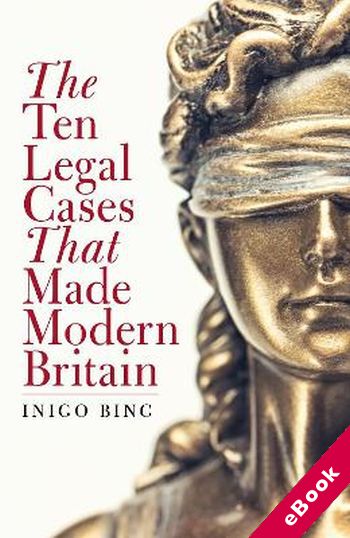We will be closed from 5pm Thursday 17th April for the Easter Bank Holidays, re-opening at 8.30am on Tuesday 22nd April. Any orders placed during this period will be processed when we re-open.

The device(s) you use to access the eBook content must be authorized with an Adobe ID before you download the product otherwise it will fail to register correctly.
For further information see https://www.wildy.com/ebook-formats
Once the order is confirmed an automated e-mail will be sent to you to allow you to download the eBook.
All eBooks are supplied firm sale and cannot be returned. If you believe there is a fault with your eBook then contact us on ebooks@wildy.com and we will help in resolving the issue. This does not affect your statutory rights.
Law shapes society and society shapes law.
In the nineteenth century, the law concentrated on setting the legal boundaries to the social cost of progress. The twentieth and twenty-first centuries have produced new challenges that were unknown to Victorians and Edwardians. Personal identity and autonomy, equal citizenship, the relationship of citizens to those in power, the freedom to protest and to speak freely and a belief that there can be choices about life and death have now assumed an importance they never had in times past. Law now encompasses ethics and morals. While we expect Parliament to reflect public opinion and to revise or repeal laws to respond to changes in public perception, this has not always happened in modern times. It has been legal cases in the courts which have also identified the need for change. This book tells the stories of ten cases which came before the courts where the decision of judges or a jury had a lasting impact on the society we inhabit. Three of the cases, on power, democracy and sovereignty, demonstrate the role judges can have in curbing the unlawful use of executive power. While the principles of free speech were judicially established in the 1970s, what legal limits, if any, should be placed on that principle in an age of cancel culture and the trans rights controversies? Protesters, whether on climate change or war, should have rights, but it is judges, not Parliament, who have protected them.
This book looks at ten cases decided between 1942 and 2021. These legal decisions have either sketched the map of future progress or articulated inherent unwritten rights which Parliament would prefer to keep quiet about. This is not a textbook, nor a comprehensive survey, but an attempt to show why legal cases are just as important to making our world as laws made by Parliament or social and cultural changes within society.